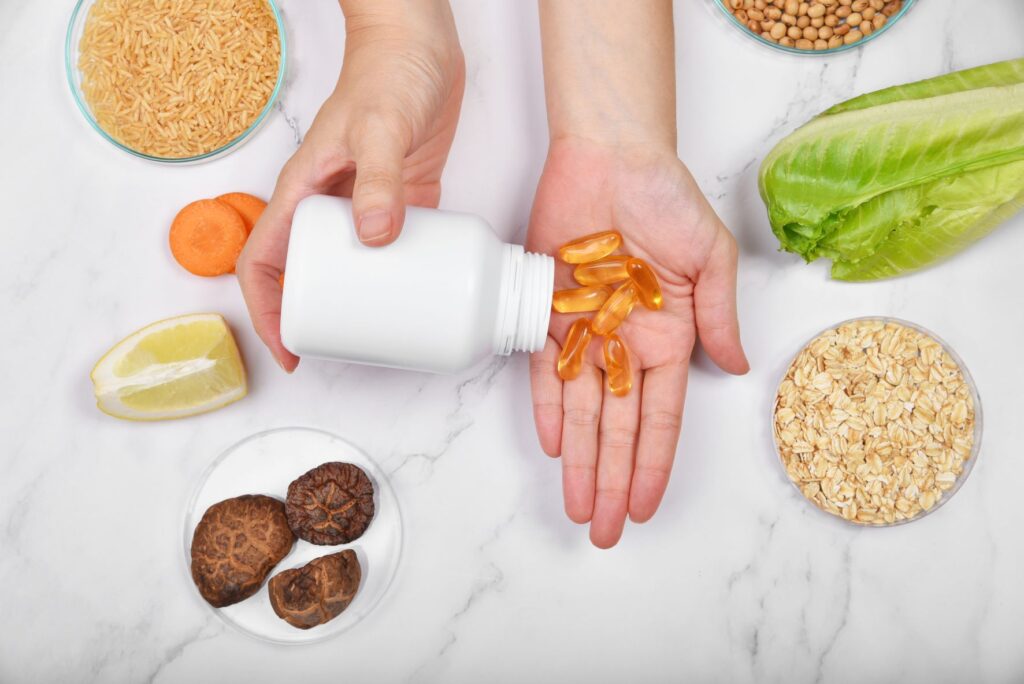What is the Healthiest Supplement to Take?
Many supplement labels make huge claims. However, consumers should research these claims before making any decisions. Vitamins and other supplements are not approved by the U.S. Food and Drug Administration (FDA), but the agency regularly inspects manufacturers and takes action if it becomes a public health hazard. There are many supplements on the market, so manufacturers might make false claims. A recent study found that 46 percent failed to live up to their lofty claims.
Vitamin D
Vitamin D is a natural substance produced by the body after exposure to sunlight. Vitamin D is important for bone health because it regulates levels of calcium, phosphate and other nutrients in the body. Low levels of these nutrients can lead to osteoporosis. This is a condition that weakens bones, and makes them fragile. Getting enough vitamin D in the body can also improve the immune system and prevent disease.
Vitamin D is a natural vitamin found in the body, but some people are deficient. Supplements are often recommended. However, it can be confusing to choose the right one for your body. You should aim to get at least 1,000 International Units (IU), of vitamin D daily.
Vitamin D-fortified foods are another option. These foods are rich in vitamin D and can easily be added to your diet. Fortified milk and fatty fish are great sources of vitamin D. Many milk alternatives are fortified with vitamin D, too. Additionally, you can get vitamin D from sunlight. Vitamin D is made by the sun’s UVB radiations. This is not possible for people with more melanin or older people.
Fish oil
If you’re looking for the healthiest supplement to take, fish oil may be the one for you. While this supplement is not regulated by the FDA like prescription drugs, it can still be very healthy for you. You need to look for a brand that has been tested in independent laboratories to ensure that it is high quality fish oil.

You can find fish oil supplements in a variety of forms, including gummies and capsules. Many of these products also come in liquid form. This makes choosing the right dosage easier. Look for a label that lists all of the ingredients and how much they contain. Ensure that the daily value is listed, as well.
Studies have found that fish oil can improve heart health. Some people find it helps lower blood pressure and prevent heart attacks. Other people find it helps improve their memory, muscle health, and overall cognitive function. If taken in excess, the supplement can cause side effects.
Zinc
Zinc is a trace mineral that is found in all bodily tissues and is essential for healthy cell division. It also plays an important role in several biochemical pathways and helps the body maintain homeostasis. Studies have shown that zinc is beneficial to heart health, blood glucose control, as well other body processes.
Zinc is available in both standalone supplements and combined multimineral products. Supplements may contain one of several forms of zinc, including zinc sulfate, zinc acetate, and zinc gluconate. A label on a zinc supplement will indicate the total amount of zinc in the supplement.
A daily dose of zinc should be between eight and 11 milligrams for adults. This amount is higher in pregnant and lactating mothers. For some, however, the recommended dose may be too high. A high-dose zinc supplement can have adverse side effects.
CoQ10
CoQ10, a powerful antioxidant, can be beneficial to your health. While it is found naturally in foods, it is often in low amounts, and many experts recommend taking a supplement. The average person gets about 25 percent of the recommended daily dose from their diet. It is important to remember that a diet alone may not be sufficient to prevent many diseases. For this reason, it’s important to find out if a supplement would be a good idea for you.
Research has shown that CoQ10 can help you increase your energy production and prevent the aging process. It also has protective effects against heart disease and degenerative brain diseases. It can also increase your physical performance. Research on sedentary people has shown its benefits. The results are encouraging. You should consult your doctor before you take CoQ10. CoQ10 can interact drugs like warfarin.
The safest CoQ10 dosage is between 100 and 200 mg per day. You can buy supplements with higher doses. However, it’s better to start with the lower dose and increase it if necessary.